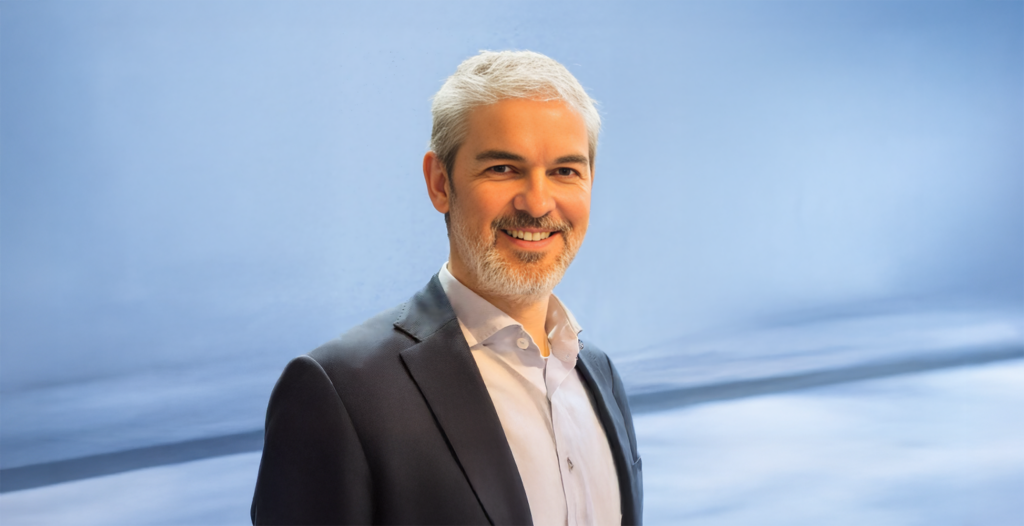Share
Interview with the Director of Knowledge and Talent Management, ACIS-SERGAS
Mario Mosquera, Director of Knowledge and Talent Management at ACIS, shares with Netex the key components behind SHARE — a strategic initiative that has improved patient outcomes across the Galician public health system through targeted training programmes.
Public investment and innovation — this has been the formula behind Galicia’s success in positioning itself as a national leader in healthcare digitalisation. Spearheaded by the regional government and institutions such as the Galician Agency for Health Knowledge (ACIS), the region has led the way in Public Procurement of Innovation (PPI), an instrument backed by the EU’s Recovery and Resilience Facility. Since 2010, Galicia has secured approximately €400 million through innovation projects, representing nearly half of all initiatives funded via Spain’s FID line (Innovation from Demand Promotion).
This firm commitment to innovation has one clear objective: improving quality of life for citizens. It is within this broader digital transformation that the SHARE project was conceived — an initiative that has unified the region’s knowledge management systems, supported by ACIS, the cornerstone of health innovation and training in Galicia.
Technology serving patients
Galicia set out to improve healthcare staff training while also promoting healthier lifestyles among its population. SHARE has successfully delivered on both fronts — creating a collaborative learning ecosystem that enables knowledge to flow from government to professionals, and from professionals to patients.
SHARE integrates with the internal systems of the Galician Health Service, “offering tailored training for every professional category”, explains Mosquera. “We can now recommend specific content based on the profile of each group — delivering exactly what professionals need, when they need it”.
This personalised training approach has had a significant impact on system-wide efficiency. “To give you an idea, before SHARE we were issuing around 16,000 training certificates a year. In 2023, that number soared to over 130,000”, Mosquera notes. “Improving the training of healthcare teams has a tangible, positive effect on the quality of care delivered to patients”.
Every course completed is automatically recorded in the professional’s digital file, streamlining administrative processes such as internal promotions or staff transfers. “It allows for a more agile and transparent evaluation of career progression”, he adds.
Large-scale training for a complex healthcare system
SHARE was built to respond to the specific demands of a large and diverse workforce — nearly 50,000 professionals across the Galician healthcare system. “Managing knowledge at this scale means dealing with a vast volume of information”, Mosquera explains. “We must meet the learning needs of dozens of healthcare and non-healthcare categories, spanning more than 30 medical and support specialities”.
All of this, without forgetting that the project also aims to educate citizens on managing their health conditions and adopting healthier lifestyles. In this respect, SHARE provides tailored training for specific patient groups, such as people with diabetes or expectant mothers. “We’ve created content explaining how the glucose monitor worn on the arm works for diabetic patients. There is also detailed guidance on how to use the app that sends their data to the electronic health record”, Mosquera explains. These resources have been available since late 2024 and have been very well received by the public. “Over 11,000 people accessed the content within just a few months”.
Public Procurement of Innovation has accelerated the digital transformation of Galicia’s healthcare system, and SHARE is now a key component within the broader innovation ecosystem developed by the Xunta in recent years. Much of the platform’s high performance is due to its seamless integration with Sergas’ core digital tools, including IANUS5, an advanced electronic health record system.
As Mosquera explains, SHARE was created in a particularly favourable environment for digital transformation. Galicia has successfully leveraged the strengths of Public Procurement of Innovation to establish a robust technological foundation. The region has received multiple awards for the development of its electronic health records—IANUS5 is now seen as a national benchmark—and for its strong commitment to patient-focused digitalisation.
Galicia has made training a core component of how SERGAS operates. “SHARE has proven to be a key ally, supporting a number of major reforms within SERGAS through targeted training”, Mosquera concludes. “When you have a well-trained workforce, you’re better prepared to respond to care-related challenges and can implement new techniques and procedures much more efficiently”, he notes.
All of this comes with the added value that SHARE is fully patient-centred. “A physiotherapist can recommend specific rehabilitation exercise videos, whether for use at the gym or at home, and the patient can follow the guidance correctly from anywhere,” explains the ACIS director. In his view, this ability to provide personalised recommendations marks a significant step forward in delivering more proactive care focused on self-management.
A project that improves patient care
Through SHARE, training courses have been rolled out for different healthcare categories, along with specific learning content for patients with diabetes, pregnant women, deaf individuals, and older adults. It even includes immersive experiences using virtual reality to promote healthier habits.
Beyond the impressive figures, what truly sets this project apart is the social impact it delivers. “Doctors can now prescribe a tailored dietary guide for diabetic patients or a full training course on managing their condition”, explains Mosquera — a strategy that makes patient education an active part of the treatment and helps deliver “more effective, person-centred care”.
You may also be interested in
- Alfonso Caballero (AstraZeneca): “A training programme is only successful if it delivers measurable results”
- “We must learn today what our patients will need in the future”
Share

